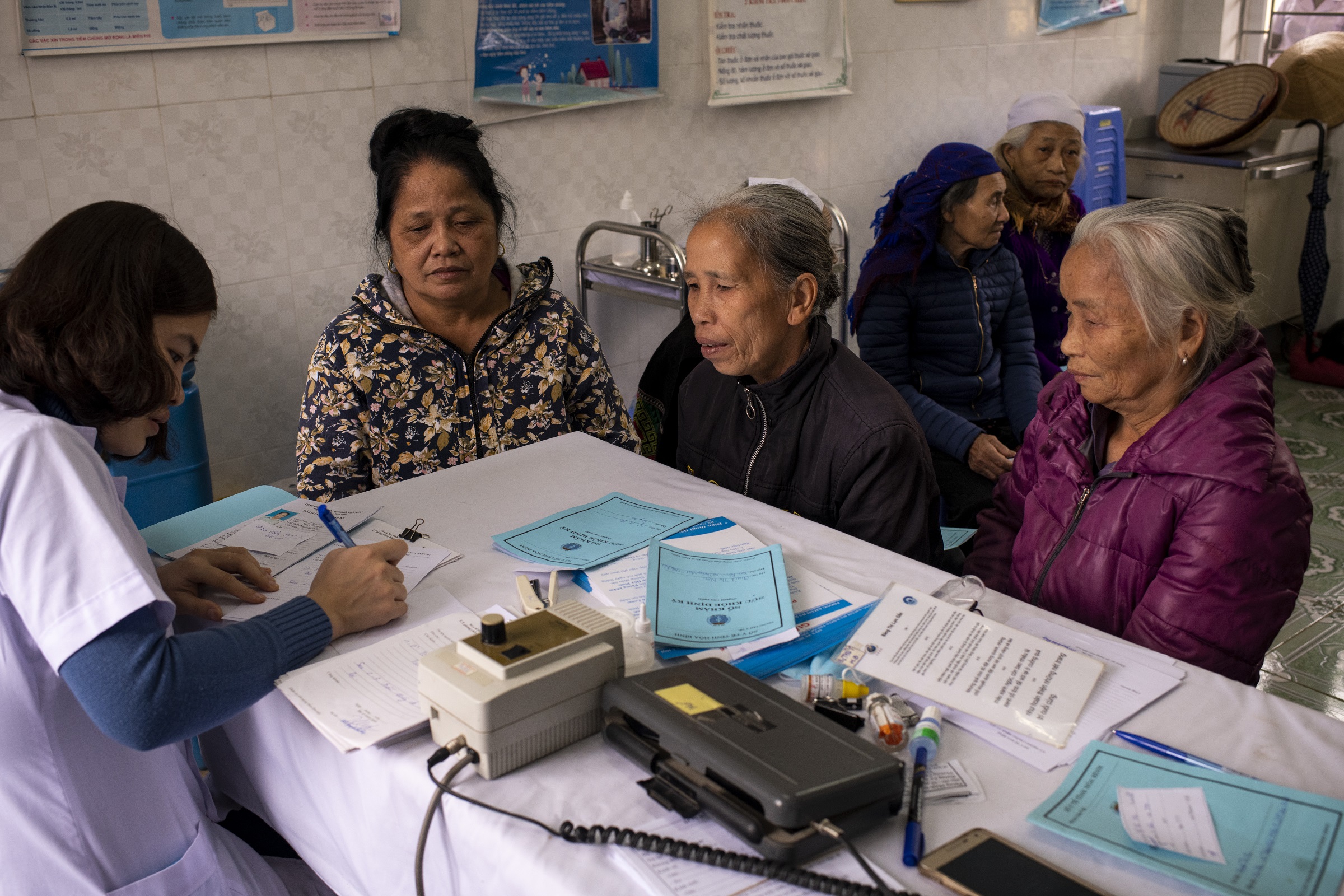
April 2020 to May 2021
Lead research institution: University of Sheffield
Other participating research institutions: University of Liverpool, Osaka University
Principal investigators: Dr Christopher Carroll, Health Economics and Decision Science, School of Health and Related Research, University of Sheffield; Dr Hiroyasu Iso, Department of Social Medicine, Graduate School of Medicine, Osaka University
Global
Background
The global community is advancing the Sustainable Development Goals and target of the progressive realization of Universal Health Coverage (UHC) by 2030. As such, many countries face the challenge of measuring and monitoring their progress in a way that is appropriate to the context of population ageing. The requirements of older people should be considered, including variations in their diversity of needs, as well as the differences in need among older people and other age groups. The objective of this project is to present the evidence on the contributors to equity in health care needs and service coverage for older people to improve monitoring for UHC in the context of population ageing.
Goals
1. To conduct a global scoping review of the conceptual and theoretical literature to determine what should be measured to assess equity of service coverage, particularly for older people.
2. As a secondary goal, to conduct a review of the literature published in Japanese on health care service coverage of older people to understand how equity is conceptualized.
Methods
-
The conceptual and theoretical literature were searched using a combination of thesaurus and free-text terms for metrics, models/frameworks/theories, older people, equity/disparity and coverage/utilisation/access/need. Databases used to identify relevant published and unpublished (grey) literature included: CINAHL (Ovid), MEDLINE (Ovid), PsycINFO (Ovid), Social Science Citation Index (SSCI) (Web of Science), Global Index Medicus, BIREME, LILACs, SCIELO, CiNii and Ichushi Web. There were no search limitations of date or language.
-
The evidence base included age-specific frameworks, empirical data or literature that exclusively concerned older people or specific groups of older people and covered social (long-term) care services as well as health care services.
-
The data were analysed to construct a meta-framework that represents equity, access and need, and what should be considered in any monitoring of equity concerning older populations. The data synthesis also considered how far the findings of the new conceptual framework might be integrated with existing, relevant policy frameworks to determine the policy implications.
-
For the study of Japanese literature, a search was conducted in domestic bibliographic databases, CiNii and Ichushi Web, as well as in international databases, PubMed and Web of Science. Data charting and synthesis was based on an adapted version of the framework to enable a more nuanced analysis of the literature related to Japan.
Results
- The global search retrieved 10,517 citations and 32 relevant articles were identified for inclusion from a global evidence base. A meta-framework was produced based on how equity in health care needs and service coverage of older people have been conceptualized in the literature. The framework identified the following relevant factors: acceptability; affordability; appropriateness; availability and resources; awareness; capacity for decision-making; need; personal social and cultural circumstances; and physical accessibility. The prevalence of multimorbidity, complex care needs, capacity and accessibility issues among older people as a group – and within groups of older people – mean that these factors achieve much greater prominence in our framework than in generic access frameworks.
- For the study of Japanese literature, 5,880 citations were identified, and 50 studies were included in the review. The studies were categorized according to the adapted framework which identified nine domains of equity: financial disparity and affordability; availability of services and resources; geographical/regional disparity; cultural and psychological barriers; racial/ethnic disparity; gender disparity; period/cohort disparity; patient capacity to make decisions; and patient knowledge/awareness. The review found that discussions about equity in healthcare access among older people in Japan were focused mainly on issues related to financial barriers, availability of services and geographical/regional disparity.
Global Implications
The measurement of equity in the health care needs and service coverage of older people is under-developed. The framework developed in this study suggest that there is a need to move beyond generic access frameworks when measuring equity in older populations. More accurate frameworks could include indicators for the older person’s capacity for decision-making, their personal and social environment, and complex care needs due to comorbidities. The conceptual framework developed by this research has informed a subsequent statistical study that aims to quantify unmet needs for health and social care among older people across multiple countries.
Implications for Kansai
Few studies examine inequities in health care access and coverage for older people in the Kansai region. However, some studies and databases appear to provide a comparison of prefectures or municipalities in Kansai with those in other regions. Further analysis of such existing studies and data may help improve our understanding of equity in service coverage and health care access in Kansai including for older people. This finding has led WKC to conduct an analysis of several existing national household survey data to better understand the financial impact of health care spending of older people and their unmet needs in Kansai as compared to other age groups and other regions of Japan.
Publications
Carroll C, Sworn K, Booth A, Tsuchiya A, Maden M, Rosenberg M. Equity in healthcare access and service coverage for older people: a scoping review of the conceptual literature. Integrated Healthcare Journal 2022;4:e000092. doi: 10.1136/ihj-2021-000092
WKC Evidence Summary: Key concepts for assessing equity in health care access among older people. Kobe: WHO Centre for Health Development; September 2021. (Download PDF below)

